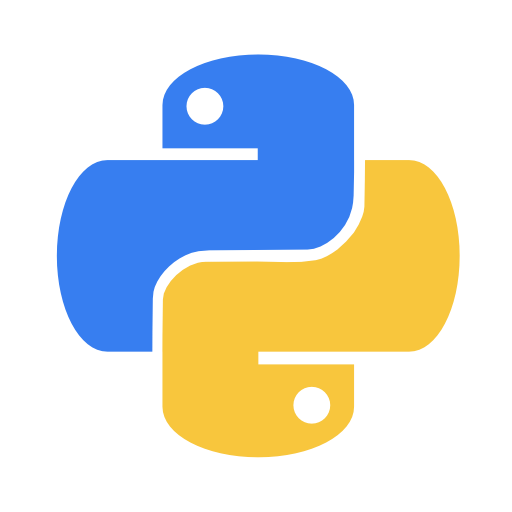Python Programming - Introduction to Python For Beginners
- What is Python
- Why Python
- Benefits of Python
- Who is eligible for Python Course
- What we’ll show in this tutorial
¶What is Python
Python is a high-level, expound programming language known for its ingenuousness and readability. It was maked by Guido van Rossum and at first released in 1991. Python supports many programming paradigms, with procedural, object-oriented, and functional programming. It has a extensive standard library and a vast ecosystem of third-party packages, making it compatible for a wide range of applications,
- with web development,
- data analysis,
- synthetic intelligence,
- scientific computing, and
- automation.
Python’s syntax strengthen code readability and simplicity, which creates it popular among beginners and experienced programmers alike.
¶Why Python
Python is chosen for different reasons, including below-
1. Simplicity and Readability: Python’s syntax is clear and very easy to understand, which shorten the cost of program maintenance and development. Its readability creates it an luscious option for both beginners and experienced developers.
**2. Versatility: **Python is a multipurpose language that can be used for various objectives, including web development, data analysis, scientific computing, artificial intelligence, automation, and more other. Its comprehensive standard library and best ecosystem of third-party packages make it suitable for a wide range of applications.
**3. Large Community and Ecosystem: **Python has a big and active community of developers worldwide. That community subscribe to the language’s growth, development, and support, confirm that there are enormous resources available for learning, troubleshooting, and collaboration.
4. Portability: Python program is platform-independent, that meaning code written in Python can run on any platform with minimal or no alternation. This portability creates it an best choice for projects that need to run on multiple operating systems.
5. Integration Capabilities: Python can easily fuse with other languages and technologies, making it compatible for building complex systems and solutions that leverage existing infrastructure and tools.
6. Scalability: Python’s representation and scalability have improved significantly over the years, thanks to progress in implementation (such as the CPython interpreter and optimization techniques) and the availability of libraries and frameworks optimized for performance-critical tasks.
7. Community Support and Documentation: Python has lovely documentation, with extensive guides, tutorials, and references available for both of beginners and experienced developers. Additionally, the community take steps active support through forums, mailing lists, and social media platforms.
¶Benefits of Python
¶Who is eligible for Python Course
The eligibility criteria for a Python course can vary build on the institution or organization offering the course. But, normally, there are no strict prerequisites for learning Python, as it is deliberated a beginner-friendly programming language.
There are some common guidelines for who might benefit from a Python course:
1. Beginners: Python program is often recommended as a first programming language for beginners due to its ingenuousness and readability. So, individuals with little to no programming experience are eligible for Python courses.
**2. Students: **Higher Secondary school students, college students, and those pursuing higher education in fields like computer science, data science, engineering, or any other discipline where programming skills are helpful can enroll in Python courses.
3. Professionals: Professionals looking to improve their skills or transition into careers in software development, data analysis, machine learning, web development, automation, or any other field where Python is used broadly can also enroll in Python courses.
4. Career Changers: Individuals looking to switch careers and enter the tech industry can benefit from learning Python Program as it is widely used across various domains.
5. Anyone Interested in Programming: Python program is not just for those pursuing technical careers. Writers, artists, scientists, and professionals from various backgrounds can also find Python useful for automating tasks, data analysis, and more.
6. Prerequisites: Whilst not always necessary, having basic computer literacy and thickness with concepts like variables, data types, and basic mathematics can be helpful for grasping Python opinion more easily.
¶What we’ll show in this tutorial
Master Python Syntax Simplified: A Comprehensive Guide
All Tutorials in this playlist
Popular Tutorials
Categories
-
Artificial Intelligence (AI)
11
-
Bash Scripting
1
-
Bootstrap CSS
0
-
C Programming
14
-
C#
0
-
ChatGPT
1
-
Code Editor
2
-
Computer Engineering
3
-
CSS
28
-
Data Structure and Algorithm
18
-
Design Pattern in PHP
2
-
Design Patterns - Clean Code
1
-
E-Book
1
-
Git Commands
1
-
HTML
19
-
Interview Prepration
2
-
Java Programming
0
-
JavaScript
12
-
Laravel PHP Framework
37
-
Mysql
1
-
Node JS
1
-
Online Business
0
-
PHP
28
-
Programming
8
-
Python
12
-
React Js
19
-
React Native
1
-
Redux
2
-
Rust Programming
15
-
SEO - Search Engine Optimization
1
-
Tailwind CSS
1
-
Typescript
10
-
Uncategorized
0
-
Vue JS
1
-
Windows Operating system
1
-
Woocommerce
1
-
WordPress Development
2
Tags
- Artificial Intelligence (AI)
- Bash Scripting
- Business
- C
- C Programming
- C-sharp programming
- C++
- Code Editor
- Computer Engineering
- CSS
- Data Structure and Algorithm
- Database
- Design pattern
- Express JS
- git
- Git Commands
- github
- HTML
- Java
- JavaScript
- Laravel
- Mathematics
- MongoDB
- Mysql
- Node JS
- PHP
- Programming
- Python
- React Js
- Redux
- Rust Programming Language
- SEO
- TypeScript
- Vue JS
- Windows terminal
- Woocommerce
- WordPress
- WordPress Plugin Development

